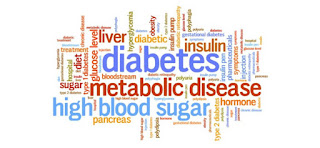
Lesbian and bisexual women are at a greater risk of
developing type 2 diabetes due to stress than heterosexual ones,
according to a research.
The study, involving 94,250 women across the United States,
was led by San Diego State University.
The co-authored study, led by Heather L. Corliss, investigated the incidence of
type 2 diabetes in lesbian and bisexual women and heterosexual women.
For the study, the team analysed survey results dating back to 1989 from women
participating in the Nurses' Health Study II, which is one of the largest
investigations into the risk factors for major chronic diseases in women.
All women were between the ages 24 to 44 at the start of the study and were
assessed for a diagnosis of type 2 diabetes every other year to
identify the incidence, from 1989 to 2013. The women self-identified their
sexual orientation and, of the participants, 1,267 identified as lesbian
or bisexual and 92,983 identified as heterosexual. Diabetes was
assessed by self-reported clinician diagnosis.
Corliss and her colleagues found over that 24-year time period that lesbian
and bisexual women had a 27 percent higher risk of developing type 2 diabetes than heterosexual
women. In 2013, 6,399 women had developed type 2 diabetes with
lesbian and bisexual women having a 22 percent greater risk of developing
type 2 diabetes.
The team also found that lesbian and bisexual women developed type
2 diabetes at younger ages than heterosexual women and that
a higher body mass index in lesbian and bisexual women was an
important contributor to disparities found.
"Given the significantly higher risk of developing type 2 diabetes before
age 50 years among LB women, and their potentially longer duration of living
with type 2 diabetes, LB women may also be more likely to experience
complications compared with heterosexual women," the researchers
wrote in the paper.
Stress is an important consideration, here. The team noted that stress related
to discrimination, violence victimization and psychological distress, were
reportedly higher for lesbian and bisexual women, and these factors
may contribute to higher rates of health-related issues for those women.
"Although it is important to address behavioral factors such as physical
activity, sedentary behaviour and dietary intake, focusing on these
factors alone may not be sufficient to eliminate LB women's disparities in
chronic disease," the team explained.
The findings appear in the journal Diabetes Care.
ANI



Comments
Post a Comment